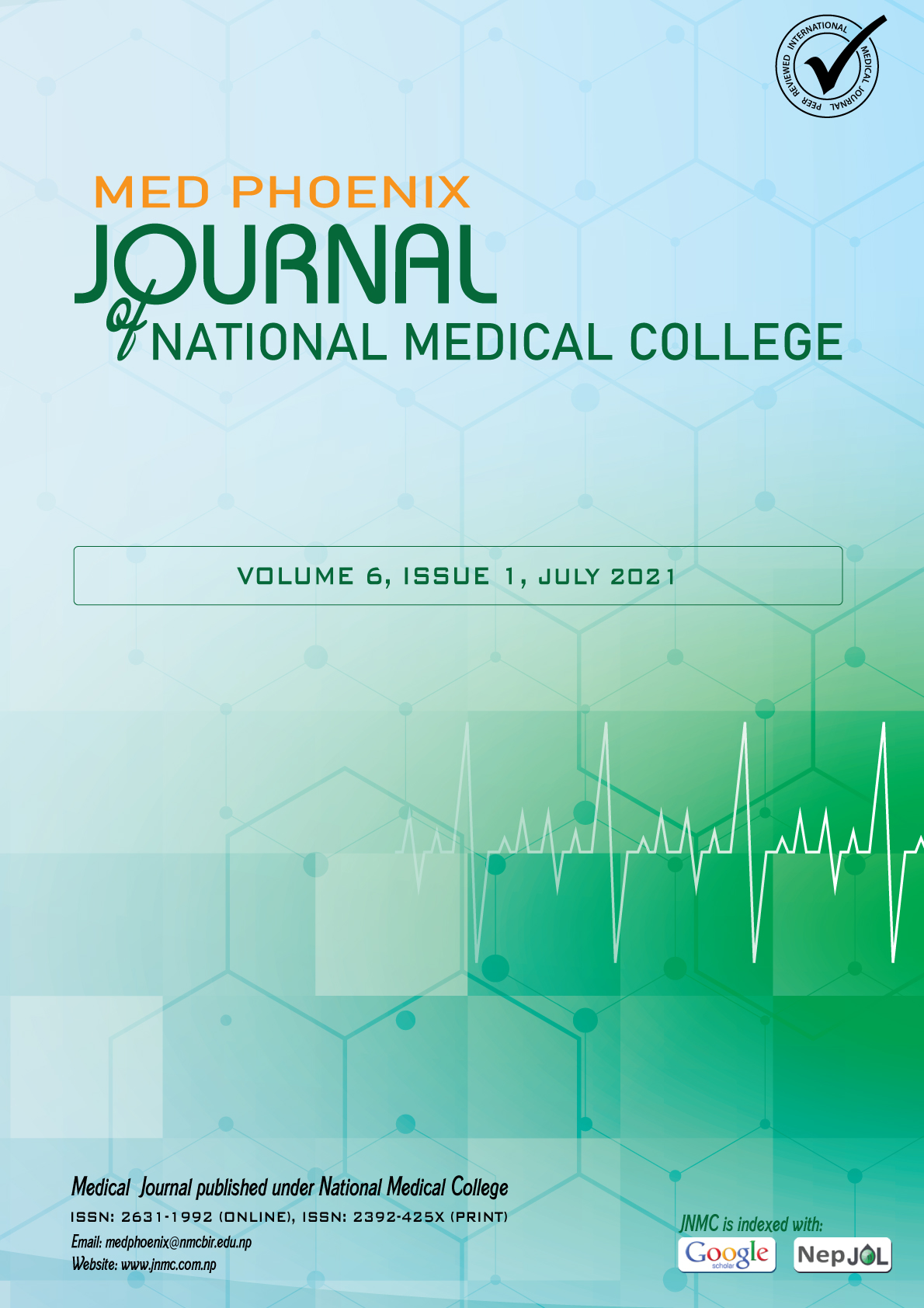Knowledge, Attitude and Practices of Pharmacovigilance among Doctors at a Tertiary Care Teaching Hospital Birgunj, Nepal
DOI:
https://doi.org/10.3126/medphoenix.v6i1.36681Keywords:
Attitude, Knowledge, Pharmacovigilance, PracticesAbstract
Introduction: Pharmacovigilance helps in the detection and prevention of adverse effects of drugs. For the effectiveness of this program, health care professionals should report adverse drug reactions (ADRs) considering it as their moral and professional obligation. The objective of the study was to assess the knowledge, attitude, and practices (KAP) of the doctors towards ADRs and pharmacovigilance in National Medical College Teaching Hospital (NMCTH), a tertiary care teaching hospital situated in the Narayani zone.
Materials and Methods: A cross-sectional study was carried out using a self-administered questionnaire consisting of four parts; first part included a demographic profile of participants, the second part consisted of ten questions for the assessment of the knowledge about pharmacovigilance, third part comprised of six questions on attitude and fourth part consisted of five questions on practice. The results were depicted in the form of percentages for each KAPs questionnaire.
Results: The response rate of participants was 85.16%. Pharmacovigilance was correctly defined by 52%. Department of drug administration was responsible for monitoring ADRs in Nepal was correctly given by 80%. Only 8% had reported ADRs, although 62% had encountered an ADR in their clinical practice.
Conclusion: The doctors at NMCTH had a poor KAP towards pharmacovigilance and educational intervention is needed for the proper functioning of this program.
Downloads
Downloads
Published
How to Cite
Issue
Section
License
This license enables reusers to distribute, remix, adapt, and build upon the material in any medium or format, so long as attribution is given to the creator.
Copyright on any research article is transferred in full to MED PHOENIX upon publication. The copyright transfer includes the right to reproduce and distribute the article in any form of reproduction (printing, electronic media or any other form).




